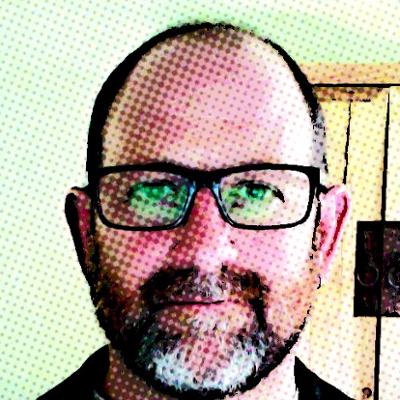Human! Know Thyself, Heal Thyself, Be Thyself
- steven

- Dec 16, 2019
- 3 min read

I was speaking with a friend a couple of days ago, who is struggling with a major decision that has significant ramifications for her and some loved ones in her life. I told her about Ruth Chang’s theory of we come to define who we are by building a narrative to explain how we come to resolve hard decisions. I encouraged her follow my conclusion from research on why tossing a coin to make a choice ca be truly beneficial, and the conversation flowed into new areas.
While the conversation moved on, my subconscious clearly paused and percolated the notion of how we define who we are. And, as so often happens, I was handed a number of opportunities to explore this notion more deeply in the ensuing days.
Bill Plotkin does a masterful job of laying out the critical developmental task of coming to know who we are, or more specifically, knowing our gift to be shared with the world as a post-adolescent task that can only be successfully navigated if we’ve applied adequate time and energy to preparing for this monumental goal. I, of course, was just in the thick of this section of the book late last week.
On Saturday I spent a great afternoon with three inspiring thirty-something young men doing our best to conduct a sweat lodge ceremony in the rainy, snowy, cloudy cold of early Vermont Winter. Our conversation and sharing largely revolved around the issues of both knowing our individual callings and the struggles of pursuing them. One of the threads that stood out strongly to me was the ease with which we fill up our time pursuing goals and can so easily lose our bearings by not taking the time to go inward and downward to embrace the unknown parts of ourselves that still need to emerge.
I woke Sunday and took a short drive where I happened to tune into NPR’s “On Being”, in which the poet and philosopher David Whyte was being interviewed. I knew I was familiar with the guest before they took a break and announced his name, but wasn’t entirely sure until he read a snippet of one of his poems. It was one of many that Bill Plotkin has quoted in his books and so I chuckled at my good fortune to have 20 minutes to get to know Whyte better.
At this point I was not at all surprised when the discussion turned to loneliness and being alone, a topic Whyte has explored extensively in his writing. The notion that tied these recent events together and pushed me to the keyboard was the necessity of spending time alone with oneself in order to know ourselves. Not just alone, because we are all capable of filling up our headspace with myriad distractions from our screens, our radios, books, etc. What we need is unstructured alone time where we are free enough to be able to observe our thoughts and feelings and how we are reacting to the environment around us. This kind of time is necessary to do the work that Chang eludes to, the time where we construct that narrative of the values and beliefs we possess that led us to make the hard decision. It’s very explicitly the time that Plotkin discusses when he describes the necessity of wandering and our developmental stage he calls the cocoon.
It is also a natural outcome from spending a significant amount of time meditating. The Tibetan word used for meditation is pronounced “gome” and the literal translation to English is to “become familiar with”. Traditional teachings focus the familiarity process as directed to our minds. The practice of meditation is specifically aimed at helping us develop insight with respect to our thought process and emotional worlds. The purpose of doing this from a Buddhist perspective is largely to facilitate developing cognitive and behavioral strategies to reduce our suffering and increase our wellbeing; and for the Mahayana tradition, this in turn is for the sole purpose of being able to help others to achieve the same.
All of this to conclude that we cannot reliably reach satisfying hard-decisions without a deep knowledge of who are are as an individual. We must become familiar who we are at any given moment of our life, our strengths and our challenges. Doing so can be hard work, particularly getting to know our challenges in an honest and compassionate manner. We cannot fully know who we are without spending ample time to this task. There is some good news here, while going off to become a hermit on a mountain side is certainly one way to achieve this, I encourage a more moderate, yet powerful approach - try 10 minutes a day. There are several guided meditations in the beginner section of my youtube channel and a specific one to accompany this post, here.




Comments